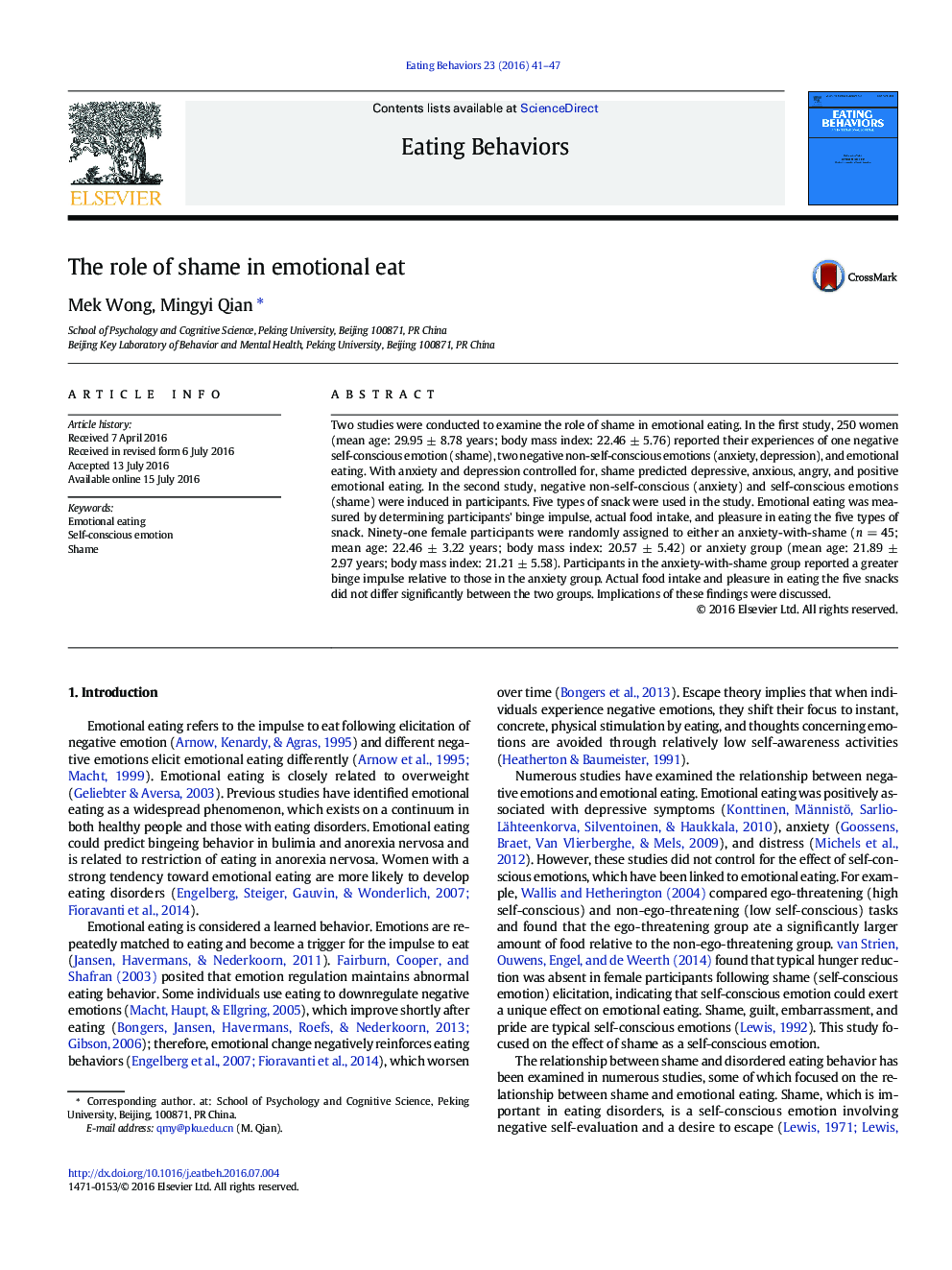| Article ID | Journal | Published Year | Pages | File Type |
|---|---|---|---|---|
| 906171 | Eating Behaviors | 2016 | 7 Pages |
•The role of shame in emotional eating was studies in two studies with correlational and experimental designs.•With anxiety and depression controlled for, shame predicted depressive, anxious, angry, and positive emotional eating.•Relative to anxiety group, the anxiety-with- shame group reported a greater binge impulse.•No difference were found between anxiety group and anxiety-with-shame group on actual food intake, pleasure in eating.•Shame, as a self-conscious emotion, played an important role in emotional eating.
Two studies were conducted to examine the role of shame in emotional eating. In the first study, 250 women (mean age: 29.95 ± 8.78 years; body mass index: 22.46 ± 5.76) reported their experiences of one negative self-conscious emotion (shame), two negative non-self-conscious emotions (anxiety, depression), and emotional eating. With anxiety and depression controlled for, shame predicted depressive, anxious, angry, and positive emotional eating. In the second study, negative non-self-conscious (anxiety) and self-conscious emotions (shame) were induced in participants. Five types of snack were used in the study. Emotional eating was measured by determining participants' binge impulse, actual food intake, and pleasure in eating the five types of snack. Ninety-one female participants were randomly assigned to either an anxiety-with-shame (n = 45; mean age: 22.46 ± 3.22 years; body mass index: 20.57 ± 5.42) or anxiety group (mean age: 21.89 ± 2.97 years; body mass index: 21.21 ± 5.58). Participants in the anxiety-with-shame group reported a greater binge impulse relative to those in the anxiety group. Actual food intake and pleasure in eating the five snacks did not differ significantly between the two groups. Implications of these findings were discussed.
